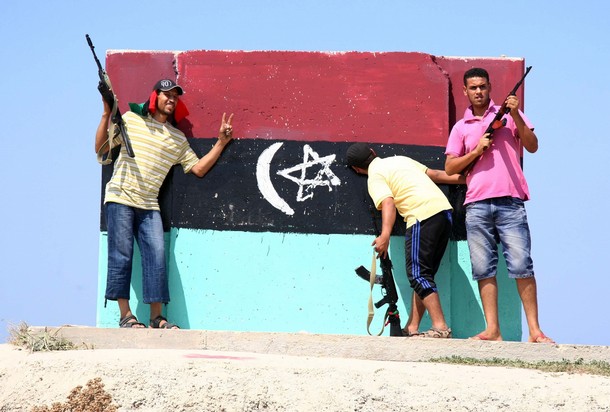
From Stephen M. Walt, Foreign Policy: The rebel victory in Libya is likely to gladden the hearts of liberal interventionists, who will see the NATO-aided triumph as vindicating the idea that great powers have the right and the responsibility to come to the aid of victims of tyrannical oppression. Add to that the general enthusiasm-which I share-for the broad effort to create more open and democratic orders in the Middle East, and it seems likely that the Wilsonian project that the U.S. foreign policy establishment has long embraced will get a shot in the arm. The debacles in Iraq and Afghanistan will be discounted, and the "Libyan model" (whatever that is) will become the latest strategic fad du jour. . . .
As I’ve noted before, we still don’t know how the "Libyan revolution" is going to turn out. Even if Qaddafi set a very low standard for effective or just governance, the end-result of his ouster may not be as gratifying as we hope. More importantly, we also ought to guard against the common tendency to draw big policy conclusions from a single case, especially when we don’t have good theories to help us understand the differences between different outcomes. . . .
But notice one danger here: even when circumstances aren’t propitious, advocates of intervention can fall prey to wishful thinking and convince themselves that they have figured out how to do these things properly, thereby avoiding the disasters that have befallen others. Right now, some people are undoubtedly thinking that the right combination of special forces, drones, local allies, and multilateral support are the magic formula for success. They may be right but I wouldn’t assume it blindly and I wouldn’t ignore the possibility that others will start thinking about ways to make sure the U.S. and its allies can’t repeat this sort of thing elsewhere. Donald Rumsfeld was pretty sure he knew how the United States could avoid costly quagmires-go in light and get out early-the only problem was that getting in turned out to be the easy part. And don’t be surprised if a few countries conclude that the real lesson of the Libyan intervention was that Muammar al-Qaddafi blundered when he agreed to end his WMD programs and open up to the outside world. I’m glad he did, but I suspect that leaders in Iran and North Korea will draw their own conclusions. (photo: Getty)
Image: getty%208%2030%2011%20Libyan%20opposition.jpg
